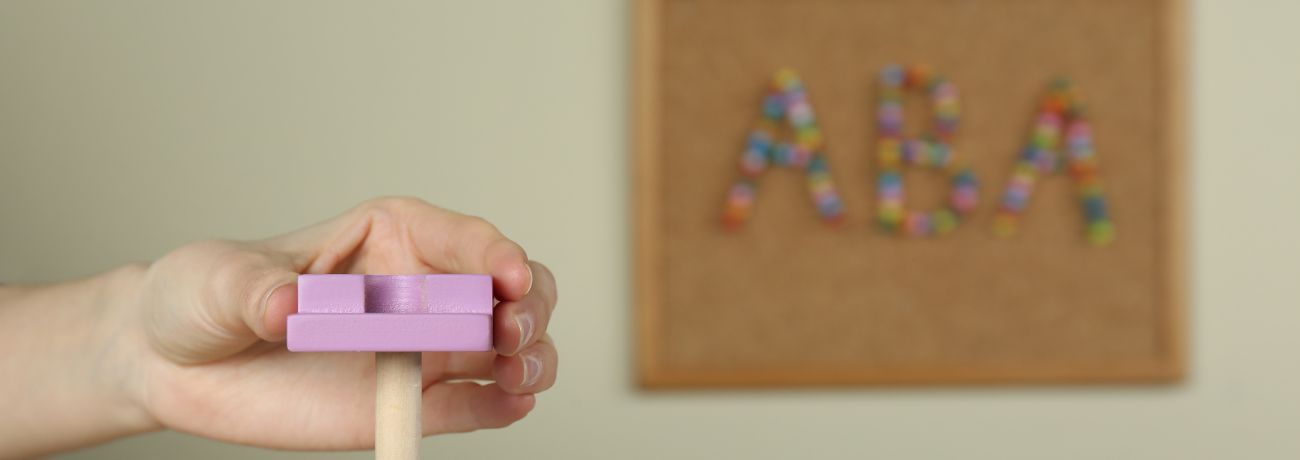How Long Are ABA Therapy Sessions? A Complete Guide to ABA Therapy Duration
If you’re considering Applied Behavior Analysis (ABA) therapy for your child with autism spectrum disorder (ASD), one of your first questions is likely about the time commitment involved. Understanding ABA therapy session lengths and scheduling is crucial for families planning their journey toward positive behavioral change.
Understanding ABA Therapy Sessions: The Basics
ABA therapy is a behavior therapy that uses behavioral learning principles to help children with autism and other mental disorders develop essential skills and reduce challenging behaviors. Each session is carefully structured to provide consistent, systematic learning opportunities while remaining flexible enough to adapt to your child’s unique needs.
A typical ABA program consists of several different types of sessions:
- One-on-One Therapy Sessions: These form the core of ABA treatment, where your child works directly with a trained behavior technician under the supervision of a Board Certified Behavior Analyst (BCBA).
- Parent Training Sessions: Regular meetings between parents and the BCBA to discuss progress, strategies, and ways to support lea
- rning at home.
- Group Skills Sessions: When appropriate, some children participate in small group sessions to practice social skills with peers.
Standard ABA Therapy Session Durations
The length of ABA therapy sessions can vary significantly based on individual needs, but most programs follow evidence-based guidelines for optimal results. Current research and clinical experience suggest the following frameworks:
Typical Session Lengths:
- Short Sessions: 2-3 hours (common for younger children or those new to therapy)
- Medium Sessions: 3-4 hours (typical for most school-age children)
- Extended Sessions: 4-6 hours (often part of intensive early intervention programs)
Weekly Recommendations by Age:
- Ages 2-5: 20-40 hours per week
- Ages 6-12: 10-25 hours per week
- Adolescents (13+): Variable, typically 5-15 hours per week
Research shows that early intensive behavioral intervention, particularly for young children, often produces the best outcomes. However, it’s essential to understand that these are guidelines, not rigid rules. The duration of ABA therapy should be customized to fit the child’s progress, with session lengths adjusted based on evolving needs.
Factors That Determine ABA Session Length
Every child’s ABA therapy journey is unique, and several critical factors influence how long each session should be. Understanding these factors helps parents, and your child’s ABA therapist work together to create the most effective treatment schedule.
Clinical Factors
The clinical aspects of your child’s condition play a significant role in determining session length:
- Severity of Symptoms: Children with more intensive needs may benefit from longer sessions to address multiple skill areas and behaviors effectively.
- Learning Style and Pace: Some children learn best in shorter, more frequent sessions, while others thrive with extended learning periods.
- Current Skill Levels: The number and complexity of skills being taught can impact optimal session duration.
- Behavioral Challenges: More intensive behaviors may require longer sessions to implement consistent intervention strategies.
Personal and Environmental Considerations
Your child’s individual characteristics and circumstances also shape the ideal session length:
- Age and Development: Younger children typically have shorter attention spans and may need more frequent breaks or shorter sessions.
- Energy Levels: Natural peaks and dips in your child’s energy throughout the day influence when therapy is most effective.
- Family Schedule: Sessions need to work around school, other therapies, and family commitments.
- Home Environment: The availability of appropriate space and minimal distractions can affect session productivity.
Setting-Specific Factors
The therapy setting can significantly impact session duration:
Center-Based Therapy:
- Often allows for longer sessions due to the structured environment
- Access to more resources and materials
- Opportunities for peer interaction
- Consistent, distraction-free setting
Home-Based Therapy:
- May require shorter sessions initially to establish routine
- Natural environment for skill generalization
- Need to coordinate with family activities
- Potential for real-world learning opportunities
Creating an Optimal ABA Schedule
Creating the right ABA therapy schedule is crucial for your child’s success. Your BCBA will work with you to create a schedule that maximizes learning opportunities while considering your family’s lifestyle, including factors like peak alertness periods, school hours, meals, and sibling schedules.
How ABA Hours Change Over Time
Your child’s ABA schedule will evolve through three main phases:
- Early Intensive Phase (First 6-12 months): During the initial phase, expect 25-40 weekly hours with longer individual sessions focusing on foundational skills. This phase helps to establish a strong foundation for future progress, addressing key developmental areas in depth.
- Intermediate Phase (12-24 months): Hours typically reduce to 15-25 per week with mixed session lengths. This phase focuses on integrating therapy with other activities while maintaining regular skill assessments.
- Advanced Phase (24+ months): Weekly hours decrease to 10-15, with shorter, more focused sessions emphasizing skill maintenance and preparation for less intensive support.
Adjusting Your Child’s Schedule
Your BCBA will monitor progress to determine when schedule changes are needed. Over time, the ABA therapy hours change based on your child’s progress, gradually adjusting to ensure the most effective level of support. It might increase if there’s limited progress or new skill areas to address, and decrease when your child shows consistent skill mastery and improved independence.
Tips for Success
Success depends on maintaining consistency while building flexibility for unexpected changes. Keep regular session times when possible, but have backup plans for sick days and holidays. Regular progress tracking helps ensure the schedule continues to meet your child’s needs as they develop.
Remember, all schedule changes are made gradually with advance notice, close monitoring, and ongoing communication between your family and therapy team.
Insurance and Progress Monitoring
Most insurance plans cover ABA therapy, though requirements typically include medical necessity documentation, regular progress reports, and periodic reauthorizations. To maximize benefits, verify coverage details before starting therapy and maintain detailed documentation of your child’s progress.
Tracking Your Child’s Progress
Progress monitoring ensures therapy sessions remain effective through:
Key Progress Indicators:
- Skill acquisition and behavior reduction
- Independence levels and social interaction quality
- Generalization of skills across settings
Your BCBA tracks progress through daily notes, weekly summaries, and quarterly assessments, looking for signs of effective session length such as consistent engagement and regular skill mastery.
Signs of Optimal Session Duration
Positive Indicators:
- Consistent engagement and skill mastery
- Minimal challenging behaviors
- Positive mood during therapy
- Family satisfaction with progress
Red Flags:
- Increased fatigue or irritability
- Declining participation
- Regression in skills
- Schedule difficulties
Your therapy team uses this data to make informed decisions about session length, considering skill acquisition, behavioral progress, and family outcomes to ensure the most effective treatment plan for your child.
Special Considerations & Common Challenges
Every family’s ABA journey faces unique challenges that require careful planning and flexibility.
- Remote Therapy Sessions: Remote sessions are typically shorter (1-2 hours) with more frequent breaks and greater parent involvement. Regular technology checks and manageable goals help ensure success.
- School Integration: Coordinating therapy with academic schedules requires careful planning, including before/after school sessions and collaboration with teachers. Holiday breaks and summer schedules need special consideration.
- Managing Common Challenges: Families often face schedule conflicts, fatigue, and transportation issues. Solutions include maintaining flexible backup options, building in regular breaks, and considering home-based or telehealth alternatives when needed. Early communication and proactive planning help minimize disruptions to your child’s therapy schedule.
Ready to learn more about how ABA therapy can help your child? At Champions ABA, we provide personalized behavior therapy programs tailored to your child’s unique needs. Our experienced ABA therapists are committed to creating effective treatment plans that work for your family.
Conclusion
Every child’s path through ABA therapy is unique, with treatment hours and intensity carefully tailored to their specific needs. With the right guidance and consistent support, you’ll see your child develop new skills and gain independence. Our evidence-based approach ensures measurable progress while adapting to your child’s changing needs.
At Champions ABA, we specialize in creating personalized ABA therapy programs that help children reach their full potential. Our experienced team of therapists will work closely with your family to develop an effective treatment plan that fits your schedule and goals. Contact us for a consultation today and take the first step toward meaningful progress!
FAQs
How long should an ABA session be?
ABA therapy sessions typically last between 2-5 hours per session, with early intervention programs often recommending 20-40 hours per week. The exact duration depends on your child’s individual needs, age, and treatment goals, as assessed by your child’s ABA therapist.
What is a typical day in ABA therapy?
A typical ABA therapy day includes structured learning activities, natural environment teaching, play-based learning, and regular breaks throughout the session. Your child will work one-on-one with their therapist on specific goals while data is collected to track progress.
What does a typical ABA session look like?
Each ABA session includes a mix of structured table work, play-based activities, and natural environment teaching, with regular breaks for rest and snacks. The therapist will alternate between teaching new skills and maintaining previously learned ones while providing consistent positive reinforcement.
What should I do in my first ABA session?
In your first session, you’ll share important information about your child, discuss your goals and concerns with the therapy team, and learn about the treatment process. If your child is beginning an intensive treatment plan, your BCBA will explain the expected time commitment and how therapy will be structured to promote meaningful progress.
How do I know if ABA therapy is working?
You’ll know ABA therapy is working when you see measurable progress toward goals, increased communication attempts, and reduced challenging behaviors in various settings. Your child’s therapy team will provide regular progress updates and data to demonstrate improvements.



